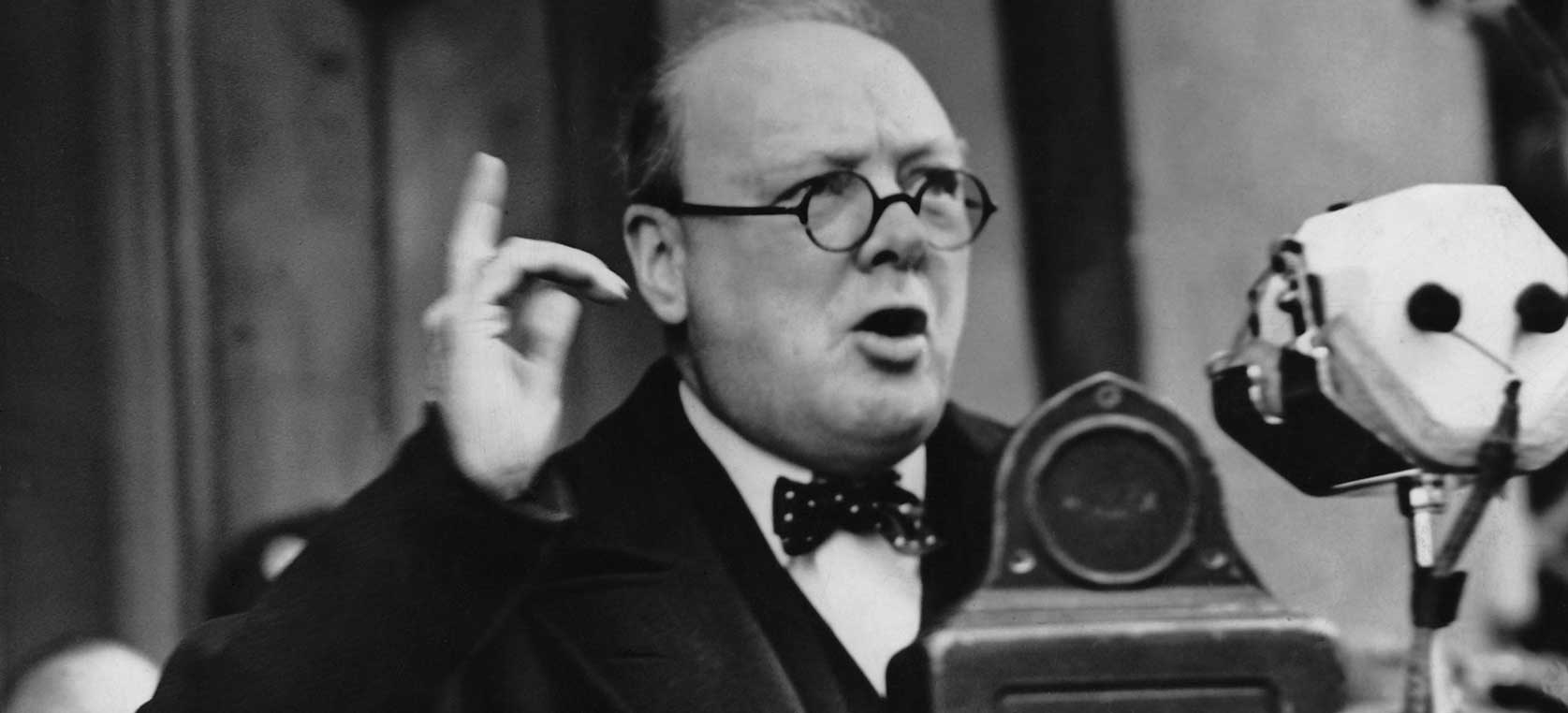 |
| Image 1: Winston Churchill |
At the time of this speech, the world was hurting. Absolute destruction and mass death had taken place by the time World War II had ended, "all [was] broken, and [was] ground to pulp", and peace was what all truly desired. With this context in mind, the metaphors used by Churchill in this speech work to convey an emotion associated with the desires of the audience. Naming this speech something like "the foundation of peace", though expressing the same idea, fails to reach the emotion of peace that the world desired to experience. The metaphor of the "Iron Curtain" was also a brilliant way to evoke emotion and activate the imagination of the audience. Comparing the divide across Europe to an Iron Curtain insinuates a difficult barrier to overcome (iron), but at the same time a task that can be done. It insinuates darkness on the other side, and call upon the light within each audience member to shine forth to illuminate and overcome the evil.
Churchill employs further rhetorical strategies to build upon these metaphors to motivate his audience to support his cause by building on the culture, pride, and reputation of the American people. For example, in an effort to unify his American audience with the British and break down what barriers may exist, Churchill draws upon the religious faith of his audience by alluding to passages from the bible. In stating that "in my father's house there are many mansions," Churchill finds a way to help to American people see that they and their British brothers may be separated by distance, but not in faith. It called to the good in all of us that makes us want to help those who share our faith. After establishing this commonality, Churchill builds up the pride of his American audience with a call to action by pleading to "not fall below he level of achievement" that had been set. By saying this, Churchill not only pads the ego of his audience by insinuating that their level of achievement was already high, but challenges them to maintain their elevated status.
In giving this discourse, Churchill knew his audience very well. It is clear that the words he spoke were moving and powerful, but the truly persuasive manner of his speech is found in the overall meaning of the statements he makes. By carefully designing his speech, he is able to make his audience see things as he sees them, and evoke an emotion of dedication to a just cause.
Image 1: https://www.google.com/search?q=churchill&rlz=1C1CHBF_enUS767US767&source=lnms&tbm=isch&sa=X&ved=0ahUKEwi2lsGp9_PeAhVyRN8KHZ_YAIEQ_AUIDigB&biw=1242&bih=569#imgrc=jqHne8K42AFyYM:

In your second paragraph you mention Winston's acknowledgement of the current state of the world. This, combined with his own authority, helps to press upon the audience the extreme severity of the contents of his speech. Such reference to the broken and mourning world builds upon his call to action that you mention later in the post. Having set the stage of importance, his call to action means much more.
ReplyDeleteI think that Churchill was great at persuading his audience (not that they needed too much persuading). But he starts off with obvious observations to gain their confidence and then starts bringing in his own ideas. It's quite brilliant.
ReplyDelete